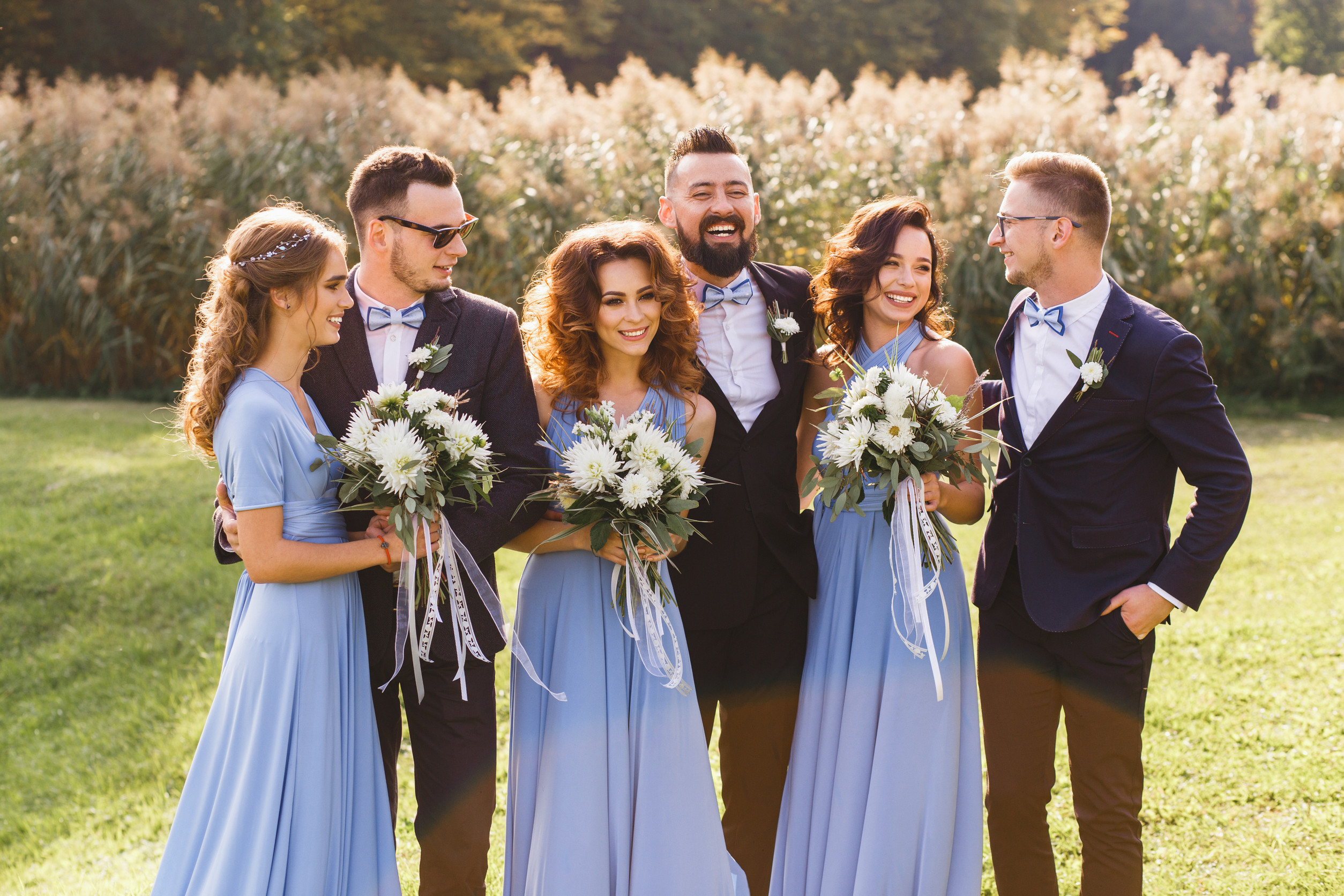
Image Source: 123rf.com
Weddings are personal, emotional, and often expensive affairs. For couples, the details—from the floral arrangements to the song list—are deeply intentional. That includes the dress code, which is becoming increasingly specific in today’s Pinterest-perfect wedding culture. But as expectations grow, so do opinions: Is it fair to expect guests to dress according to strict, and sometimes elaborate, guidelines? Or does it cross the line from thoughtful planning into controlling territory?
1. Why Dress Codes Exist in the First Place
Weddings are special, and couples often want everything to reflect their personal vision. A dress code helps set the tone—whether it’s black-tie elegance or a laid-back beach vibe. For photographers, coordinated attire can elevate the visual aesthetic of the entire day. Some couples also use dress codes to prevent guests from accidentally outshining them or looking inappropriate. At their core, dress codes are about creating harmony in the event’s overall look and feel.
2. The Rise of Hyper-Specific Requests
It’s no longer just “formal” or “casual.” Guests are now being asked to wear “earth tones,” “boho pastels,” or “no red, white, or bright colors.” Some couples provide mood boards or entire Pinterest albums for reference. While this level of detail can be helpful, it can also feel overwhelming—especially if the guest doesn’t own anything that fits the theme. These kinds of hyper-specific requests can add stress and financial strain, especially for those attending multiple weddings in a single season.
3. When Dress Codes Feel Exclusionary
Not everyone has the means—or the body type—to fit into a narrow style guideline. Asking guests to wear certain silhouettes or avoid certain colors can unintentionally alienate people. What if someone’s only formal outfit is a black dress that doesn’t fit the “bright summer color” request? What about cultural or religious dress considerations? A well-intentioned dress code can quickly become a point of discomfort if it doesn’t take real-life diversity into account.
4. The Fine Line Between Polite and Pushy

Image Source: 123rf.com
There’s a difference between suggesting a dress code and demanding one. Polite guidelines are usually welcomed: “The ceremony will be on grass, so consider wedges over heels.” But messages like “Anyone not wearing pink and gold will not be allowed in photos” can come off as controlling. Tone matters—guests are there to celebrate your love, not walk a fashion runway. Couples should strike a balance between style and grace when communicating expectations.
5. Creative Solutions for Compromise
Couples can still maintain their vision without making guests feel boxed in. Offering examples rather than ultimatums—like “Think garden chic: floral prints, soft fabrics, and comfortable shoes”—gives guests room to breathe. Including budget-friendly shopping ideas or outfit inspiration links can also be considerate. If certain colors or styles are really important, provide options for accessories like scarves or ties that guests can easily incorporate. The key is flexibility and compassion.
6. Guests Also Have a Role to Play
Let’s be honest—showing up in jeans to a black-tie wedding is disrespectful. Guests should make an effort to honor the couple’s wishes within reason. If the theme is outside your wardrobe or comfort zone, it’s okay to ask for clarification or respectfully opt out. At the end of the day, the wedding isn’t about the guests—it’s about supporting the people getting married. A little effort can go a long way in showing you care.
7. When to Push Back or Decline
Sometimes, the dress code just isn’t doable—and that’s okay. Maybe it conflicts with your finances, your values, or your identity. You’re not wrong for having boundaries, and it’s possible to decline the invitation politely if the expectations feel too demanding. If it’s someone close to you, have an honest conversation rather than ghosting. A kind explanation can preserve the relationship, even if you won’t be attending.
Finding the Right Balance
Weddings are emotional, beautiful, and yes, a bit stressful—for everyone involved. Couples deserve to create a day that feels like them, and guests deserve to feel comfortable and respected. The secret is communication and empathy on both sides. Dress codes aren’t inherently unfair, but how they’re presented and enforced can make all the difference. After all, weddings are about love—and that includes how we treat the people we invite to share in it.
We’d love to hear your take! Have you ever received a wedding invite with a super-specific dress code? Did you follow it—or push back? Drop your thoughts in the comments and let’s keep the conversation going!
Read More:
Rain, Allergies, and Chaos: 7 Spring Wedding Tips You’ll Be Thankful For
The No-Fuss Wedding Checklist That Everyone Will Be Talking About
